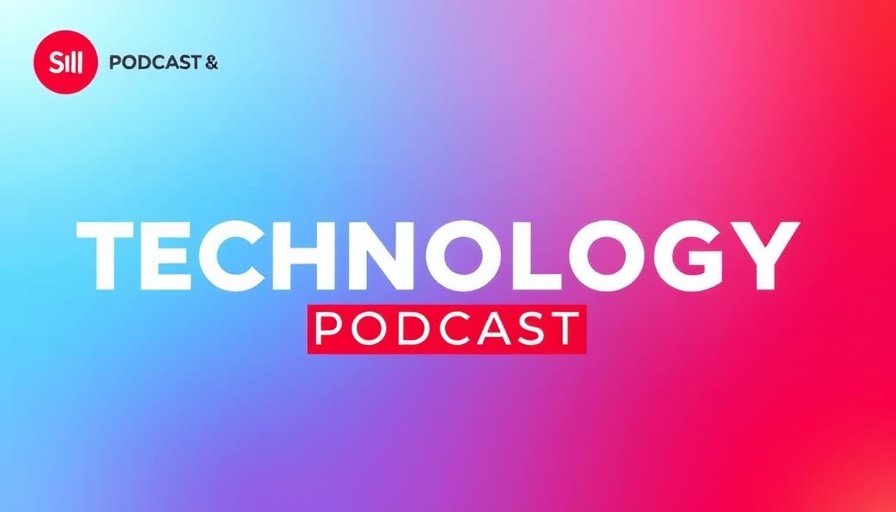
Is Hollywood Ready for AI-Generated Blockbusters?
As we gaze into the crystal ball of cinema, questions arise about the future of films. With advancements in artificial intelligence (AI), particularly during events like Google I/O, a pertinent question emerges: Are we approaching a time when summer blockbuster films will largely consist of computer-generated imagery (CGI)? This discussion sparked a vibrant debate among industry professionals recently, highlighting both excitement and skepticism surrounding the implications of such technology.
In 'Google I/O, NLWeb, llm-d and is Stack Overflow dead?', the discussion dives into the powerful influence of AI on cinematography and online knowledge-sharing, prompting us to explore its implications further.
Understanding the AI Landscape
During the recent Google I/O, a key discussion revolved around new AI models and their potential impact on various industries, especially entertainment. The introduction of tools like Google’s VEO 3, which blends video generation with AI capabilities, hints at a significant evolution in film production. However, industry experts like Abraham Daniels voice concerns that despite these technological advancements, the essence of traditional filmmaking — the human connection and storytelling — may be overshadowed by automation.
Navigating the Pricing War in AI Subscriptions
AI service providers are now competing in what could be characterized as an “AI subscription pricing war.” With plans like Google’s AI Ultra set at $250-a-month joined by OpenAI's offering, questions arise about the sustainability of such rates for consumers. As subscribers weigh the value of features versus cost, the need for clear, tangible benefits becomes paramount. Moreover, this competition could reshape not only the financial landscape for these services but the creative avenues available to artists and filmmakers.
Will Stack Overflow Survive in the Age of AI?
Another topic raised during the event is the future of knowledge-sharing platforms like Stack Overflow. With AI models quickly providing coding solutions, the necessity for community forums is being called into question. Concerns about losing rich, nuanced human expertise in favor of AI-generated responses pose a significant dilemma. Experts emphasize the importance of preserving the community-based knowledge repositories that platforms like Stack Overflow represent, as they offer depths of context, insights, and varied perspectives that a singular AI answer may lack.
Is Open Source the Future in AI Development?
The conversation about the future of AI inevitably leads to the role of open-source technologies, with projects like llm-d emerging as crucial players. Designed to facilitate large-scale AI model deployment, llm-d exemplifies the shift toward standardized, efficient tools that democratize high-performance AI access, enabling more organizations to innovate and deploy AI solutions effectively. As companies weigh proprietary advantages against potential collaborative innovations, the balance between open source and proprietary technology will determine the pace at which industries can evolve.
The Rise of AI Conversational Interfaces
The introduction of Microsoft’s NL Web is pushing the boundary of what we expect from web interactions. This platform enables users to query website content using natural language, hinting at a future where every site could act as its own AI interface. While this presents exciting possibilities for improved user experiences, it also raises questions about data privacy and the risks of a controlled information access system—making it essential to approach this new paradigm with caution.
While the advancement of AI presents thrilling possibilities for the film industry and technology as a whole, it simultaneously creates a complex tapestry of challenges spanning ethical concerns, economic implications, and community reliance on shared knowledge. As we move forward, continuous dialogue is essential in addressing these shifts, ultimately benefiting creators, consumers, and technologists alike. If you’re invested in understanding how these developments might unfold, don’t hesitate to engage further with the transformative potential of AI across different sectors now and in years to come.
 Add Row
Add Row  Add
Add 




 Add Row
Add Row  Add
Add 

Write A Comment